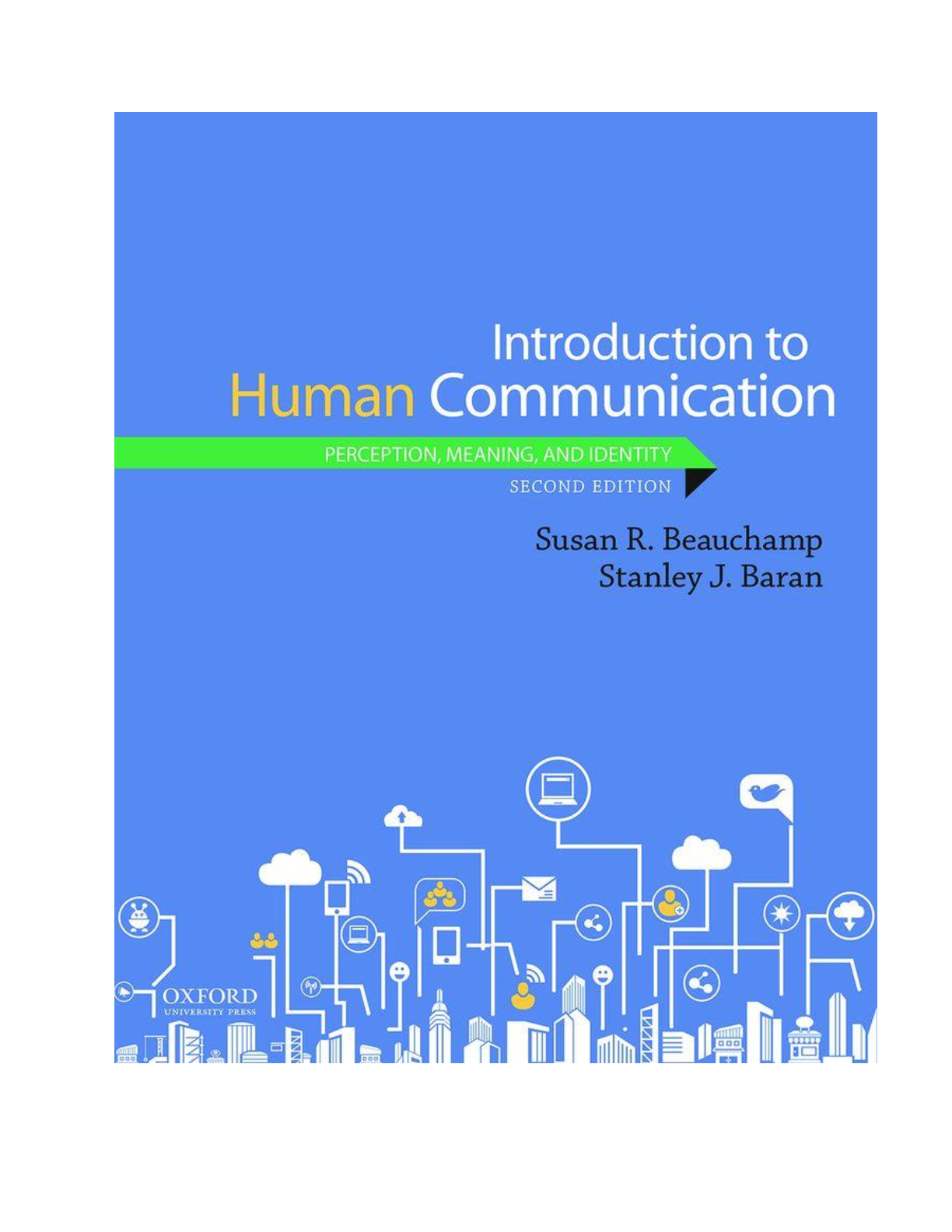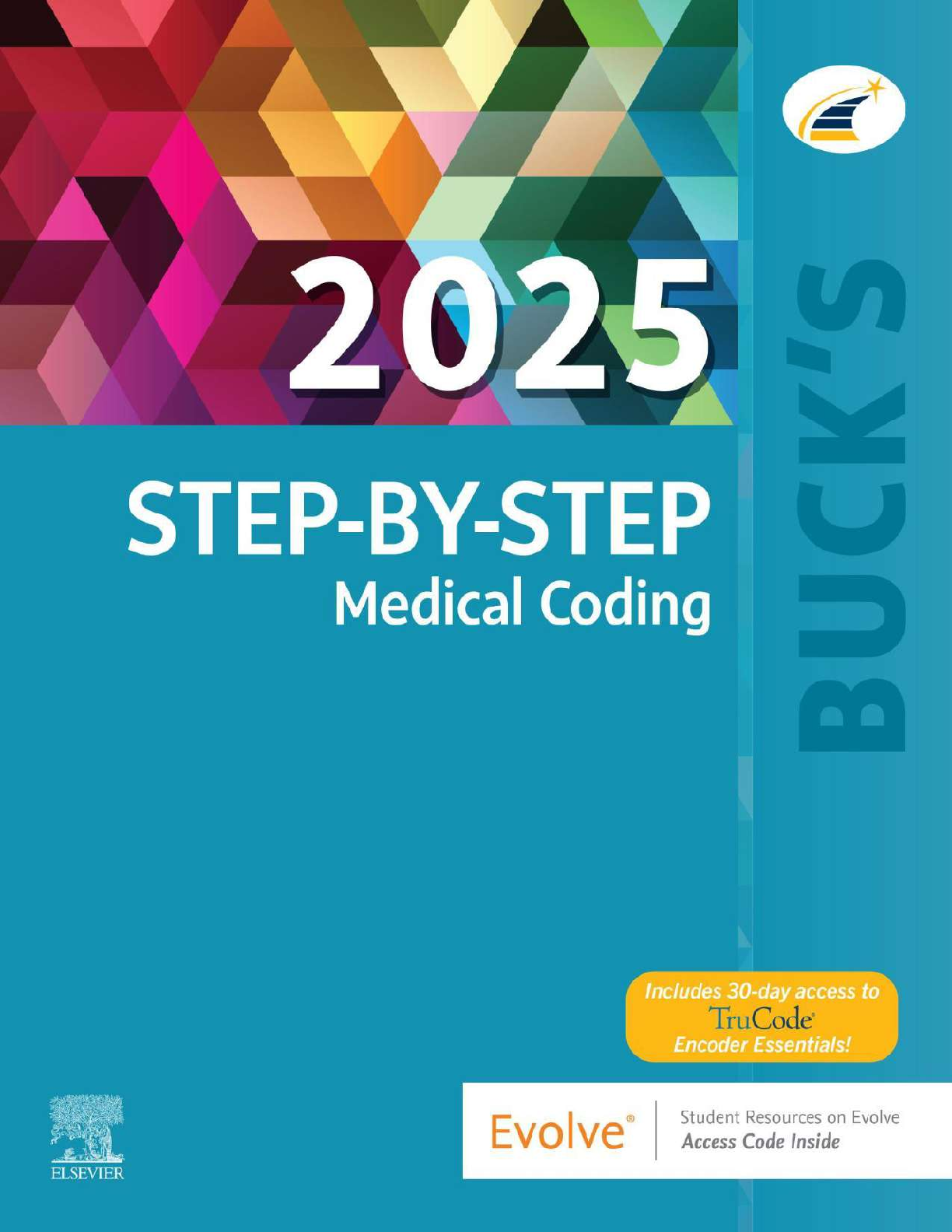Human Resource Management > eBook-PDF > [eBook] [PDF with Watermark] Introduction to Human Communication, 2nd Edition By Beauchamp, Baran (All)
[eBook] [PDF with Watermark] Introduction to Human Communication, 2nd Edition By Beauchamp, Baran
Document Content and Description Below
[eBook] [PDF] Introduction to Human Communication, 2nd Edition By Beauchamp, Baran Cover Title page Copyright Dedication Brief Contents Contents Preface 1 The Communication Process The Proces... s of Creating Meaning The Evolution of Communication Models Transmissional, Constitutive, and Ritual Views of Communication The Power of Culture Communication and Perception Signs and Symbols Communication, Perception, and Identity Symbolic Interaction and the Looking Glass Frame Analysis What Does Communication Give You the Power to Do? Review of Learning Objectives Key Terms Questions for Review Questions for Discussion 2 Communication Research and Inquiry Theory and Scientific Inquiry Defining Theory Scientific Inquiry Three Philosophical Questions That Shape Scientific Inquiry Traditions of Communication Inquiry Postpositivist Theory and Research Interpretive Theory and Research Critical Theory and Research Tools of Observation Experiments Surveys Textual Analysis Mixing Methods and Traditions Review of Learning Objectives Key Terms Questions for Review Questions for Discussion 3 Verbal Communication The Structure of Language Language and Thought Linguistic Relativity Hypothesis Metaphor The Ladder of Abstraction The Functions of Language Language and Meaning Making Situational, Social, and Cultural Meaning Syntactic Ambiguity Euphemisms Language and Protecting Self-Identity Review of Learning Objectives Key Terms Questions for Review Questions for Discussion 4 Nonverbal Communication What Is Nonverbal Communication? Similarities to Verbal Communication Differences from Verbal Communication Theory of Nonverbal Coding Systems Types of Nonverbal Coding Systems Proxemics Haptics Chronemics Kinesics Vocalics Oculesics Facial Expressions Physical Appearance Artifacts Environmental Factors Silence The Role of Nonverbal Communication in Creating Meaning and Identity Review of Learning Objectives Key Terms Questions for Review Questions for Discussion 5 Listening What Is Listening? Misconceptions about Listening The Components of Effective Listening Barriers to Effective Listening Physical Noise Psychological Noise Physiological Noise Semantic Noise External Distractions Counterproductive Listening Styles Types of Listening Becoming an Effective Listener Review of Learning Objectives Key Terms Questions for Review Questions for Discussion 6 Relational and Conflict Communication The Value of Relationships The Role of Interpersonal Communication Developing and Maintaining Relationships Uncertainty Reduction Theory Social Penetration Theory Social Exchange Theory Investment Model of Commitment Relational Dialectics Theory Interpersonal Communication and Conflict Types of Conflict Stages of Interpersonal Conflict Conflict Management Styles Resolving Conflict Review of Learning Objectives Key Terms Questions for Review Questions for Discussion 7 Communicating in Small Groups Types of Groups Dynamics of Group Structure Informal and Formal Communication in Groups Structuration Theory The Five Stages of Group Development Group Cohesion and Breakdown Systems Theory Leadership and Power Styles of Leadership Forms of Power Improving Your Group Communication Skills Review of Learning Objectives Key Terms Questions for Review Questions for Discussion 8 Organizational Communication Defining Organizational Communication Types and Movement of Organizational Messages Upward Messages Downward Messages Horizontal Messages The Organization as a System Positive and Negative Organizational Communication Traits Organizational Climate and Culture Strong Organizational Cultures Benefiting from Diversity in Organizational Culture Review of Learning Objectives Key Terms Questions for Review Questions for Discussion 9 Intercultural Communication What Is Intercultural Communication? Obstacles to Intercultural Communication The “Naturalness” of Prejudice Social Identity Theory Identity Negotiation Theory Accelerators of Intercultural Communication How Cultural Values Shape Communication Attitudes Toward Diversity and the Problem with Tolerance Review of Learning Objectives Key Terms Questions for Review Questions for Discussion 10 Mass Communication What Is Mass Communication? Why Study Mass Communication? Interpersonal Communication versus Mass Communication Culture, Communication, and Mass Media Characteristics of Media Consumers Characteristics of Media Industries Theories of Mass Communication Review of Learning Objectives Key Terms Questions for Review Questions for Discussion 11 Media Literacy What Is Media Literacy? Media Literacy Scholarship Some Core Concepts of Media Literacy Media Literacy Questions What Does It Mean to Be Media Literate? Characteristics of Media-Literate People The Skill of Being Media Literate Media Literacy and Meaning Making Media Literacy and Identity Media Literacy and Democracy Review of Learning Objectives Key Terms Questions for Review Questions for Discussion 12 Social Media and Communication Technologies The Promise and Peril of New Communication Technologies A Connected World The Dark Side of New Communication Technologies Addiction Depression Distraction and Academic Performance How Computer-Mediated Communication Affects Identity and Relationships Social Network Sites and Identity Construction and Maintenance The Internet and Interpersonal Communication Social Isolation Shy and Popular Users Facebook Envy and Our Sense of Well-Being Self-Disclosure and Relational Development Review of Learning Objectives Key Terms Questions for Review Questions for Discussion 13 Persuasion and Social Influence What Is Persuasion? Values, Attitudes, Beliefs, and Behaviors Balance Theory Dissonance Theory The Selective Processes What Factors Influence Persuasion? Source Characteristics Message Characteristics Receiver Characteristics The Elaboration Likelihood Model of Persuasion Processes of Attitude Change Review of Learning Objectives Key Terms Questions for Review Questions for Discussion 14 Health Communication Communication and a Long and Healthy Life Health Communication in Provider–Client Settings Health Communication Contexts Friends and Family Support Groups Hospital Culture Entertainment Mass Media Health Communication and the Internet Health Communication Campaigns Review of Learning Objectives Key Terms Questions for Review Questions for Discussion 15 Public Speaking The Importance of Public Speaking Types of Speeches A Crash Course in Public Speaking Identifying the Steps of Speech Preparation Overcoming Public Speaking Anxiety Review of Learning Objectives Key Terms Questions for Review Questions for Discussion Glossary References Credits Index [Show More]
Last updated: 5 months ago
Preview 1 out of 480 pages

Buy this document to get the full access instantly
Instant Download Access after purchase
Buy NowInstant download
We Accept:

Reviews( 0 )
$26.00
Can't find what you want? Try our AI powered Search
Document information
Connected school, study & course
About the document
Uploaded On
Mar 09, 2022
Number of pages
480
Written in
Additional information
This document has been written for:
Uploaded
Mar 09, 2022
Downloads
2
Views
190













, Latest Questions and Answers with Explanations, All Correct Study Guide, Download to Score A.png)
.png)










